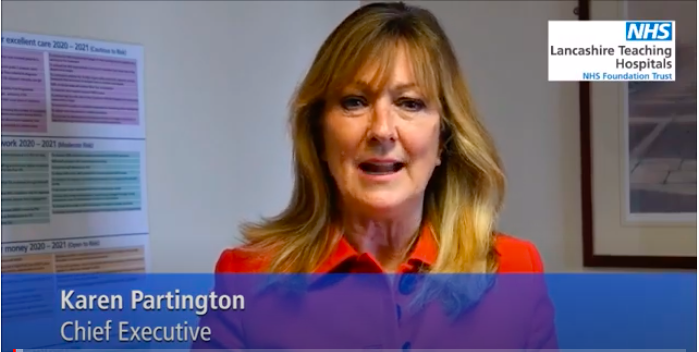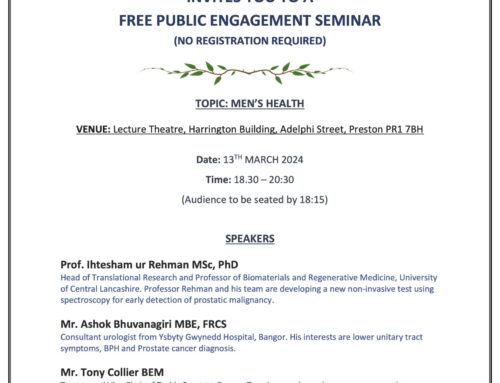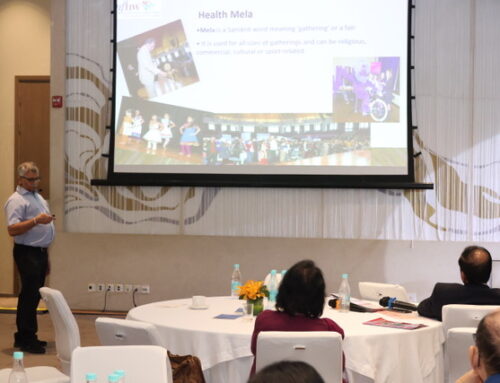On 22nd May 2021 the National Forum for Health and Wellbeing (NFHW) held its second virtual Public Engagement and Educational Seminar on the theme The long-term effects of the Covid 19 Pandemic. The event was initiated following the positive reception given to a first pilot seminar which focused on the effects of the pandemic on mental health. We hoped to replicate the success of our first virtual event.
The brief account below gives just a hint of the rich picture painted by the many distinguished figures who took part. Their experience and expertise came together to make the event a treasure chest for those seeking a wider view of the long-term impact of the pandemic.
The seminar was introduced by special guest Karen Partington, Chief Executive of Lancashire Teaching Hospitals NHS Trust. Karen spoke warmly of the partnership between the Forum and the Trust, emphasising the importance of the Forum’s educational role in supporting informed patient choice and public involvement in decision making.
Professor Romesh Gupta OBE, NFHW Chair then welcomed visitors to the Seminar taking a moment to record the sadness he and the audience shared with all those who have lost loved ones in the coronavirus outbreak. He went on to introduce the Chief Guest, Professor Calum Semple OBE, drawing particular attention to his extensive involvement in the development of a collective response to the current national crisis.
Professor Semple set the scene for the afternoon’s proceedings with a clear overview of the pandemic seen from twin perspectives. First as an authority on severe acute respiratory infections and also as an expert with a deep understanding of the wider implications of infectious disease outbreaks for society. He described his first reactions as he realised that the country was moving into a period of tragedy but summing up the pandemic so far, struck a broadly optimistic note pointing to the wealth of expertise and information on the virus available in the UK and the ‘coming together’ of society brought about by the threat it posed.
Next to speak, NFHW Steering Group member Dr Rajeev Gupta, drew attention to the economic consequences of the pandemic. He explained the inevitable impact, particularly on disadvantaged groups, of paying down the 19.5 trillion dollars of global debt so far accumulated in funding responses to the pandemic.
Honoured Guest, Professor Maggie Rae, President of the Faculty of Public Health took the stage with a wide-ranging presentation. She focused the audience’s attention on the fact that the effects of Covid 19 are not experienced equally by all groups in society and that the disease itself often acts to magnify existing disadvantages.
Subsequent contributions were equally thought provoking. First were the personal accounts of experiences gained as a victim of Long Covid. These were provided by Pyush Patel, Julia Riewald, David Williamson, Dr. Ashish Chaudhry and Dr. Neelam Patel. Each had a moving story to tell – all recommended as compulsory viewing for those who still deny the seriousness of the disease or refuse vaccination!
Included in the topics covered in contributions from Professor Dominic Harrison and Dr Sharada Gudur were accounts of the long-lasting clinical features of Covid 19 together with a discussion of appropriate evidence-based treatment and rehabilitation regimens. Drs. Mohammed Munavvar and Amit Taneja dealt with the treatment of acutely ill patients including those in intensive care. Speakers recognised the existence of extensive Covid 19 related stress in society and practical approaches for individuals to use in dealing with this problem were described by psychotherapist Jane Silver whilst the specific effects of Covid 19 on BAME groups were highlighted by Bayo Igoh, BAME lead for the Federation of Small Businesses.
Many contributors referred to the effect the pressures generated by the virus outbreak have had on the health and wellbeing of colleagues responsible for patient care. Professor Richard Jenkins, Chief Executive of Barnsley and Rotherham NHS Foundation Trusts, provided an account of the measures that can be taken to ameliorate these.
Whilst there Is no doubting the serious nature of the afternoon’s topic there were calmer and lighter notes to be found.
Drs. Monika and Prachur Agrawal’s ’Dance Yoga’ was a peaceful oasis in a busy programme and it was good to have essential Covid 19 precautions presented in dance form by the Abhinandana Dance Academy – even better when this advice was supplemented by a lively prescription for fruit-based antioxidants from what must be our youngest active member yet! Taken together, these beautifully choreographed performances raised the hearts of the audience as dance worked its magic to provide a refreshing counterpoint to the more formal proceedings.
So how do virtual seminars fit into NFHW’s future programme? At the time of writing, several days after its first airing on YouTube®, the Seminar has received approaching 4000 verified viewings and the number continues to grow. This reinforces our previous experience and must be regarded as a real success when measured against typical attendance figures of 500 – 1000 recorded for our traditional face to face Health Melas and public seminars. In the light of experience so far, we shall certainly continue to develop our virtual presence confident that it provides a powerful complementary channel for the promotion of individual, family and community health and wellbeing and also a resource for use in the training of health professionals.
If you are interested in the subject matter of our seminar or want to evaluate the format as educational source material, you can experience the virtual seminar first-hand. The recorded proceedings of the day are available via the NFHW Website www.nfhw.org.uk or by using the link:
https://nfhw.org.uk/covid19-impacts
We hope you will find the experience both thought-provoking and enjoyable!





